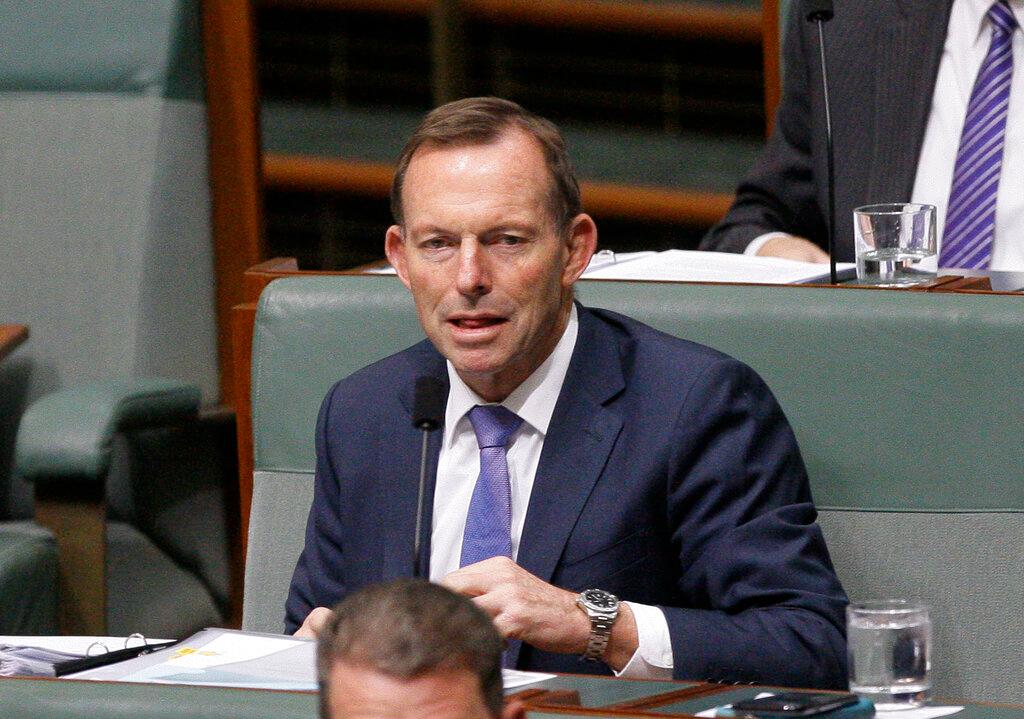Beware of China using trade as a weapon, ex-Aussie PM warns UK businesses, universities
He tells academic and business leaders to remember their duty to reduce reliance on China in 'the new Cold Peace'.
Just In
British universities have been warned against “selling your soul” to China as Beijing embarks on a “new Cold War” which weaponises trade.
UK government trade adviser Tony Abbott also urged British businesses to minimise the use of Chinese products in key supply chains in case “they are denied just when they are needed the most”.
Abbott said he had a “hell of a wake-up call” after signing a trade deal with China when he was Australian prime minister in 2014, warning that Beijing “sees trade as a strategic weapon to be turned on and off like a tap to reward friends and to punish foes”.
He said deals such as the Chinese firm Nexperia’s current attempted takeover of the UK’s largest computer chip plant, Newport Wafer Fab, “would not go ahead if it were happening in Australia”.
That takeover is now being reviewed by Boris Johnson’s national security adviser Stephen Lovegrove, and Abbott urged the UK to be much more careful about becoming dependent on China through such deals.
“It would be most unwise to sell technology businesses to Chinese interests,” he told a policy exchange event on Tuesday.
“China is asserting itself aggressively in what is at best a Cold Peace and more likely a new Cold War, only we are facing a strategic competitor that’s far more formidable than the old Soviet Union ever was because it’s been increasingly embedded inside the global economy, and can bring economic as well as military pressure to bear against its targets.”
Abbott, who sits on the UK Board of Trade, said that as well as governments guarding against Chinese economic power, “It should be every business’s concern to minimise the critical place that Chinese intermediate goods might have in our supply chains.”
Regarding the growing influence of Beijing in British universities, he acknowledged that university vice-chancellors are right to want to raise cash but not if it involves “selling your soul and corrupting your overall purpose”.
He said UK universities should still admit Chinese students but that they “should be careful that this is not an intellectual one-way street where they walk away with all sorts of technical knowledge that they wouldn’t otherwise have”.
He accused businesses and universities of being naive and greedy.
“Whether you are running a business or a university you have to have a conception of your duty as a citizen as well as your obligation as a stakeholder in that particular business entity,” he said.
“And this is where we need character not just in our national leaders but in all our leaders. We need people with the character to say no, to put the long-term interests of the country ahead of what might be their short-term economic self interest.”
Asked about the Newport Wafer Fab takeover, he said: “In Australia we have this thing called the foreign investment review board which has a pretty wide remit to examine all significant foreign investments from a national interest perspective.
“Pretty clearly the sort of purchase that is currently contemplated here in Britain would not go ahead were it happening in Australia.
“But I also think now that the PM’s national security adviser is looking at it here, obviously Britain is moving in a comparable direction.”
Subscribe to our newsletter
To be updated with all the latest news and analyses daily.
